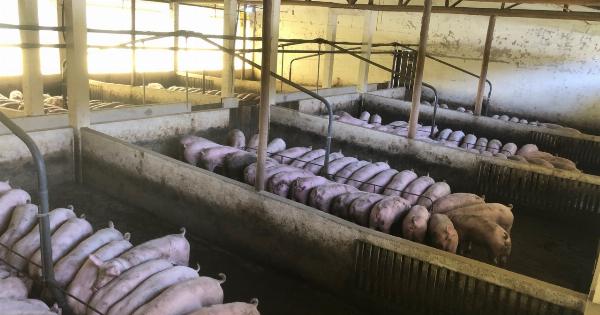Monophagy, or the habit of feeding on a single type of food, is common among different animals. For instance, some species of beetles eat only one type of plant while some carnivores feed on a single prey.
There are also people who practice monophagy, typically due to religious or cultural beliefs. While there are perceived benefits to monophagy, there are also drawbacks that warrant a closer look. This article explores the advantages and disadvantages of monophagy, as well as its impact on health and the environment.
Advantages of Monophagy
Efficiency in Digestion and Metabolism
One of the benefits of monophagy is that it can make digestion and metabolism more efficient. When an animal or human consumes a variety of foods, their digestive system has to work harder to break them down.
In contrast, consuming one type of food can simplify the digestive process and, in turn, make it more efficient. The energy saved from digestion can be utilized for other purposes, such as growth and reproduction.
Lower Risk of Nutritional Deficiencies
Monophagy also reduces the risk of nutritional deficiencies caused by imbalanced diets. When an animal or human eats a single type of food, they know precisely what nutrients they are getting and how much of them.
For example, an insect that feeds solely on one type of plant will not miss out on any essential nutrients from other plant varieties. In contrast, diets consisting of a wide range of foods run the risk of deficiencies in essential nutrients, particularly when these foods are not consumed in the right amounts.
Cultural and Religious Significance
Monophagy has cultural and religious significance for many people. For instance, some individuals adhere to monophagic diets as part of their spiritual beliefs or traditional practices.
In some cultures, certain foods are believed to have healing properties or to improve strength. The practice of monophagy is also a way to preserve cultural heritage and identity through food.
Drawbacks of Monophagy
Increased Susceptibility to Environmental Changes
Monophagy can increase an animal’s susceptibility to environmental changes, particularly when their food source becomes scarce.
For example, an insect that feeds only on one type of plant may face a significant food shortage if that plant species disappears or becomes scarce due to climate change or human activities. In extreme cases, this can lead to population declines and, ultimately, extinction. Monophagy can also limit an animal’s ability to adapt to changing food sources, which can be detrimental to their survival.
Increased Risk of Toxicity
Another disadvantage of monophagy is the increased risk of toxicity from consuming contaminated food.
When an animal or human eats a single type of food, they are more likely to be exposed to harmful chemicals, such as pesticides or heavy metals, if that food is contaminated. Moreover, their bodies may not be able to detoxify these substances as effectively as those who eat a more varied diet. In some cases, this can lead to acute or chronic toxicity, which can be harmful to health and well-being.
Lack of Variety in Nutrients
Monophagy can lead to a lack of variety in nutrients and, consequently, result in nutritional deficiencies.
While consuming a single type of food reduces the risk of nutritional imbalances caused by an excess of certain nutrients, it can also limit the variety of micronutrients that an animal or human gets. For instance, a person who eats only rice may miss out on the nutrients present in vegetables and fruits, such as vitamins and minerals.
Monophagy and Health
Benefits to Digestive Health
As previously noted, monophagy can positively impact digestion and metabolism efficiency. This, in turn, contributes to better digestion and can reduce the risk of digestive disorders.
For instance, certain digestive disorders, such as irritable bowel syndrome, can be aggravated by a diet consisting of a wide range of foods. Monophagic diets have been shown to improve symptoms of certain digestive disorders, such as inflammatory bowel disease.
Increase in Risk of Nutritional Deficiencies
While monophagy can reduce the risk of imbalanced diets, it is important to note that it can also increase the risk of nutritional deficiencies when practiced over a long period.
For instance, a person practising a monophagic diet of only rice may suffer from deficiencies in vitamins and minerals found in other foods.
Increased Risk of Toxicity
Monophagy can increase the risk of toxicity from consuming contaminated food, as previously explained in the drawbacks section. Toxicity can lead to various health issues, including acute or chronic diseases.
For example, some fish that eat only one type of prey have been found to have higher levels of mercury in their tissues, which can be harmful to humans when consumed.
Monophagy and the Environment
Impact on Biodiversity
Monophagy can have ecological impacts on biodiversity. For example, a herbivorous insect that feeds only on one plant species can contribute to the plant’s pollination and distribution.
However, an over-reliance on particular resources can lead to reduced species diversity, and even extinction, if that resource becomes scarce or disappears. In contrast, diverse diets can promote biodiversity and support multiple species; for example, bees that pollinate different plants contribute to plant diversity and help maintain food webs.
Impact on Agriculture and Food Security
Monophagy can impact agriculture and food security. When large-scale farming relies on a single crop, a disease outbreak or climate change can have significant economic consequences.
Moreover, such events can limit food sources and worsen food insecurity, particularly in regions with lower agricultural diversity. To minimize the risks associated with monophagy, it is necessary to support agricultural diversification and sustainable farming practices that promote variation in crops.
Conclusion
While monophagy has some perceived advantages, such as efficient digestion and cultural significance, it is essential to weigh its drawbacks and potential risks.
Monophagy can lead to an increased risk of toxicity, a lack of nutrients, and ecological impacts on biodiversity. To maximize the benefits of monophagy without risking its negatives, it is crucial to maintain a diverse diet consisting of different types of foods.
Cultivating sustainable farming practices that promote crop variation can also help mitigate the negative effects of monophagy on agriculture and food security.



























